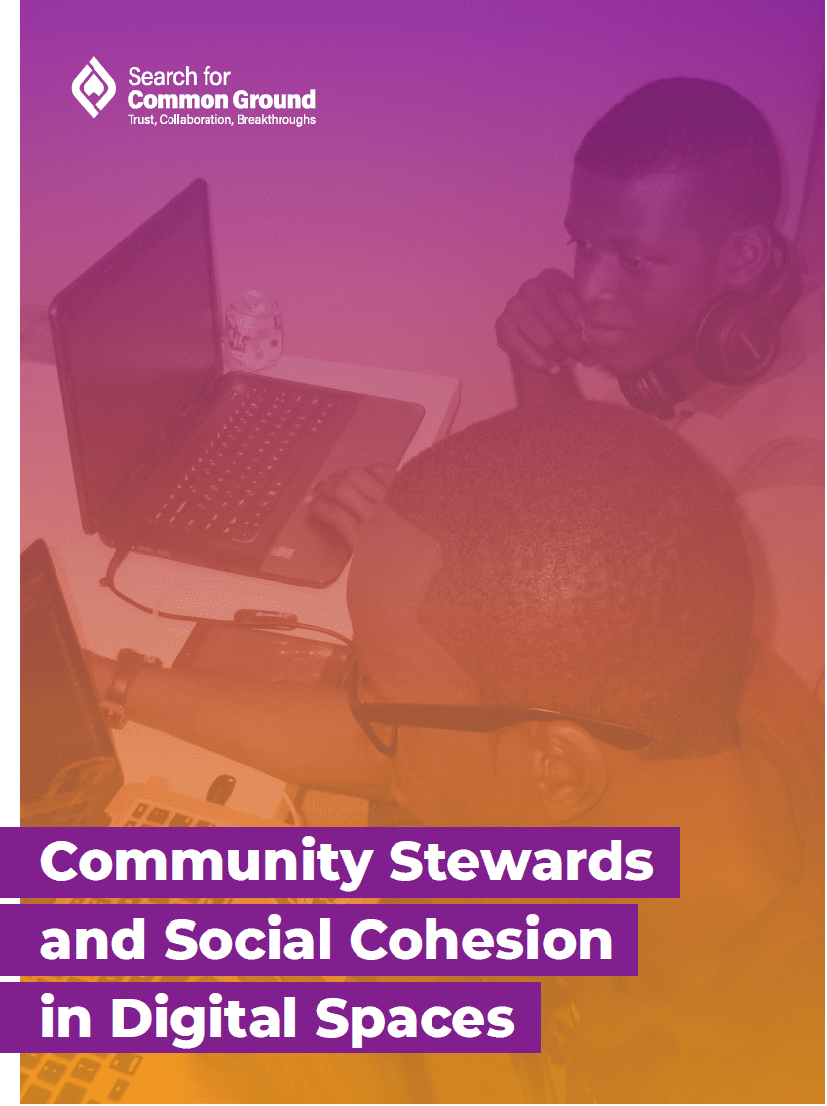The amount of users and time spent on social media is continuing to increase worldwide. Nearly 5 billion people accessed social media platforms in 2022 and the average user is spending 147 minutes on social media every day.
The penetration of the internet in the past twenty years has ushered in a new era of unprecedented connectivity and globalization. The COVID-19 pandemic increased new internet usership by 10% in two years.
A significant portion of social media users are having meaningful experiences in groups and private channels. Nearly 40% of all social media users, 1.8 billion people, use Facebook groups every month.
Research from Search for Common Ground has shown that users experience the worst violent content and the most effective responses to it in private groups or in private channels.4In conflict-affected or highly polarized contexts, the worst can be recruitment into violent extremist groups, extortion and intimidation, spreading of hate speech, incitement to violence, and the organization of criminal or violent activities, often triggering spillover effects in the offline world. The best can be building community and solidarity, mobilizing around common interests and social causes, and creating new and positive social norms that empower marginalized voices. These experiences may often lead to online-to-offline relationships and positive community action. Online communities have become critical in places where or during times when in-person connection is difficult or impossible. This is particularly important and relevant for groups who may belong to minority groups or be otherwise ostracized in their mainstream culture or society.
Since groups play such a big role in user experience, group administrators have unique authority and influence over their members. There are 70 million individuals who are administrators of Facebook groups. Many more coordinate groups across other platforms such as WhatsApp, Signal, and others, which are often run on mobile devices – with a global user base of 5.34 billion unique mobile users.
Group administrators and moderators act as “community stewards.” They are individuals in charge of reviewing user-generated content to ensure users adhere to rules, regulations, and community standards of social media platforms. They hold tremendous influence over the experience of their users, but they often step into these roles without fully understanding the scope of responsibilities they are taking on. Many community stewards describe their role as a “labor of love,” representing a substantial opportunity to catalyze large-scale, positive social change across societies. Yet, they face many challenges. Stewards cite myriad challenges, risks, rewards, and opportunities they face in managing their online groups and pages.
his report focuses on the role of community stewards in promoting healthier relationships in their online and digital groups in conflict-affected and fragile countries. There is growing evidence of the societal impacts stewards are driving through their platforms, such as mobilizing aid during crises, raising awareness on important issues, and fostering solutions to community challenges.
Given their unique reach, influence, and trust, community stewards hold great potential to not only mobilize positive social change, but also to foster connection and belonging in a way that positively transforms relationships and disrupts the toxic polarization that divides societies and fuels violence.
The potential of community stewards is clear; it is less clear how civil society, the private sector, governments, and others can best support and scale up this potential. Understanding the needs and incentives of community stewards to proactively use their roles for building healthier online (and offline) communities can help build on what works.
Understanding the barriers and challenges they face in doing so, will serve as critical entry points for mobilizing the right support to stewards. This report looks to uncover the barriers and opportunities that stewards face in their efforts to build healthier and safer online communities in conflict-affected and fragile places.

You must be logged in in order to leave a comment